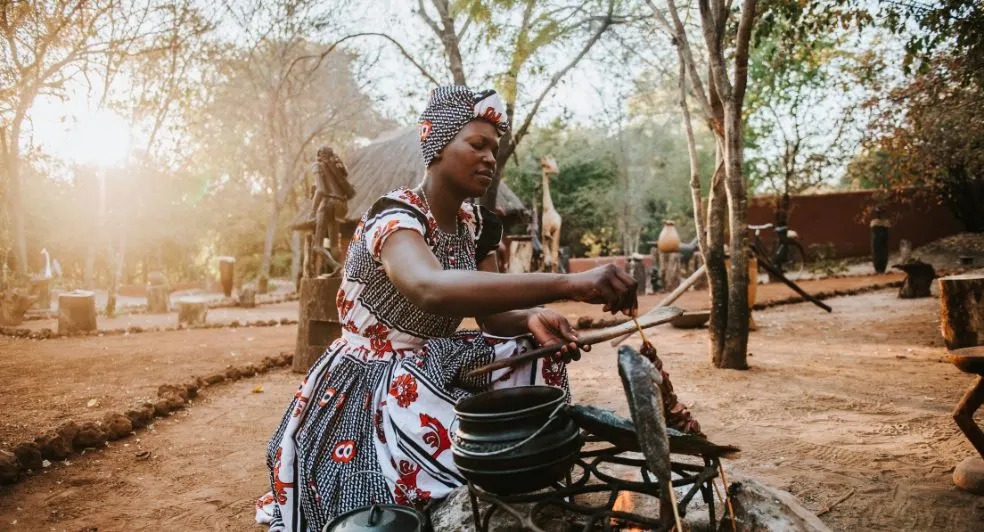Zambia, known for its stunning natural landscapes, is also a goldmine for cultural wonders. Its diverse ethnic groups, each with unique traditions and festivals, create a colourful celebration of heritage that offers an unforgettable cultural experience.
Traditional Cuisine and Crafts
It is not a cultural journey in Zambia without savouring its cuisine and crafts. Local markets abound with handmade baskets, carvings, and textiles. Trying traditional dishes like nshima and grilled fish further enriches your cultural immersion. If you’re staying at a hotel like Avani Victoria Falls Resort, you get the chance to visit a Curio Market that sells unique handicrafts, jewellery, and textiles.

Image via AVANI Victoria Falls Resort
The Kuomboka Festival: A Royal Tradition
The Kuomboka Festival is one of Zambia’s most celebrated cultural events. Held by the Lozi people, it marks the ceremonial migration of the King, or Litunga, from the flooded plains of the Zambezi River to higher ground. Featuring traditional music, dance, and the majestic Nalikwanda royal barge, this festival is a captivating display of history and pageantry. Witnessing this event is one of the most exhilarating things to do in Zambia.
Mutomboko Ceremony: A Warrior’s Legacy
The Mutomboko Ceremony is a celebration of the Lunda people’s heritage and their historical conquest of the region. This high-spirited festival involves traditional war dances, drumming, and storytelling, honouring the strength and unity of the Lunda kingdom. Visitors are invited to witness the colourful attire and energetic performances that define this cultural gathering.
Nc’wala Festival: A Celebration of Harvest
The Nc’wala Festival of the Ngoni people pays homage to the first fruits of the harvest. Held in February, this festival showcases traditional war dances and rituals that honour ancestors and give thanks for the year’s bounty. The sense of community and gratitude is palpable, offering visitors a deep connection to Zambian traditions.
Makishi Dances: Guardians of Tradition
The Makishi dances, part of the Mukanda initiation ceremony among the Luvale people, are a unique cultural experience. The dancers wear elaborate masks, representing ancestral spirits that guide young boys into adulthood. This age-old tradition is a fascinating glimpse into Zambia’s spiritual and cultural beliefs.












